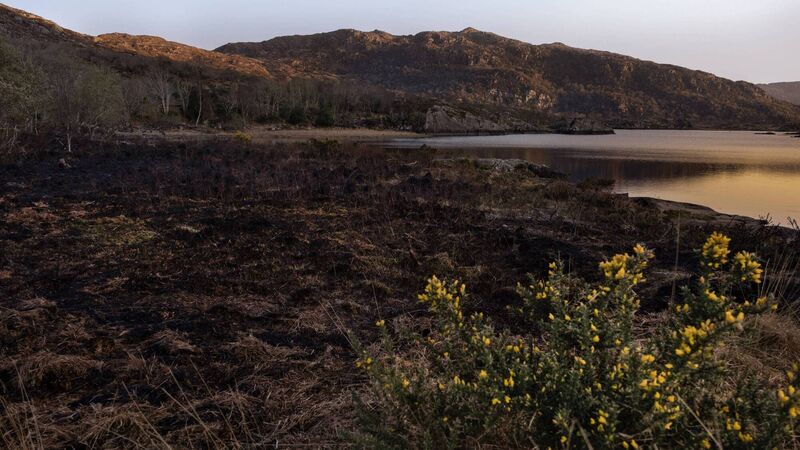Impunity for environmental crimes sees our hills burn

A fire broke out at the Eagle's Nest, Five Mile Bridge, Killarney National Park recently. Kerry Fire and Rescue Service crews quickly contained the fire with just half an acre destroyed. Photo: Valerie O'Sullivan
During the first day of nationwide checkpoints on Wednesday, October 7, 2020, under new Level 3 covid-19 restrictions which limited travel to absolutely necessary, gardaí reported huge congestion, tailbacks and traffic jams.
Obviously, quite an extraordinary number of people thought their journeys were absolutely necessary or maybe some thought the restrictions were for other people.
CLIMATE & SUSTAINABILITY HUB
















